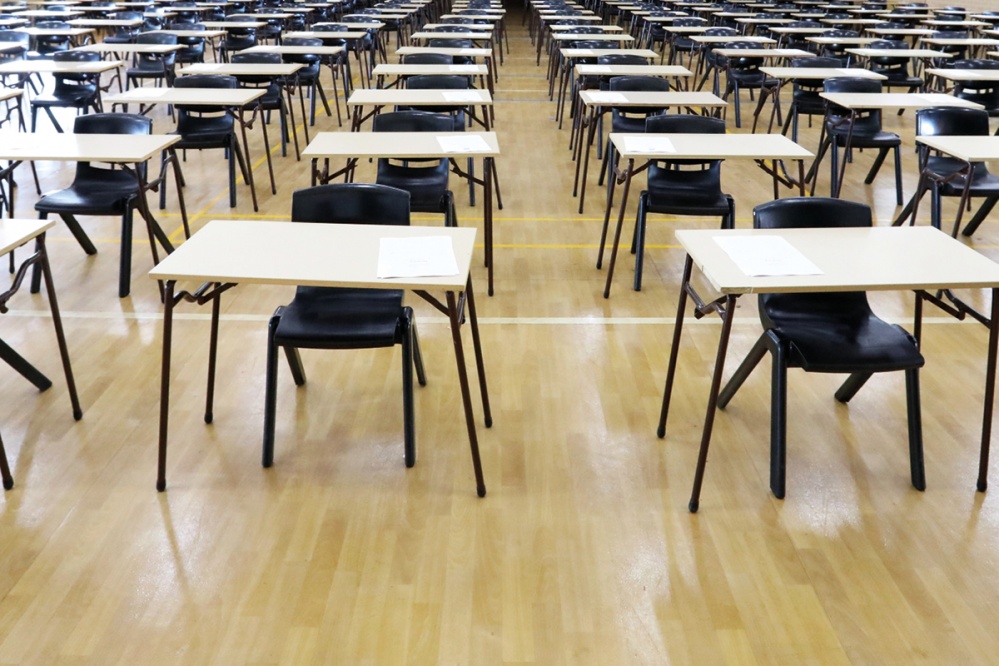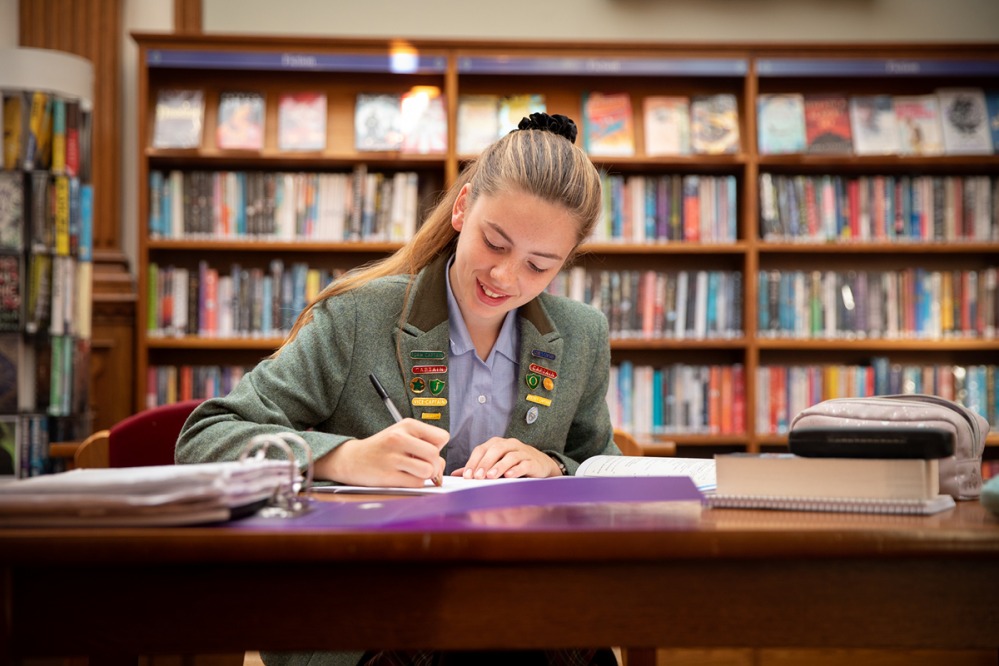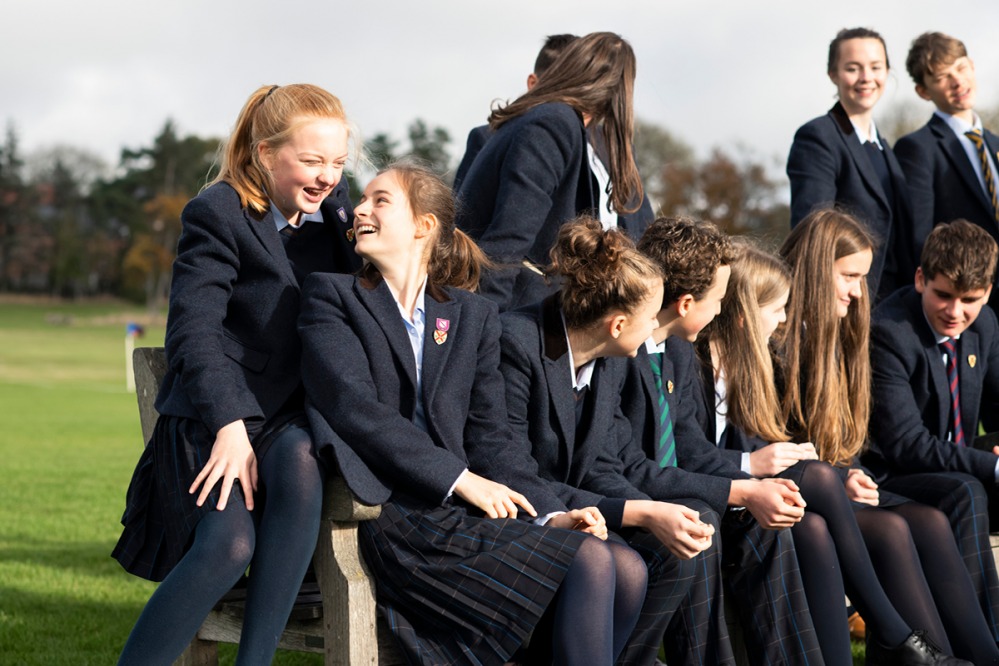Worried about School Entrance Exams?

We reach out to the staff at top independent schools for their advice on entrance exams, and how best to tackle them

Newcastle School for Boys’ director of marketing and admissions, Alex Kingsland, explains this best: ‘The post-Christmas period represents a crucial time in independent schools where the important process of entrance assessment and testing for the following academic year commences. With limited places on offer, the stakes are high and it is no wonder that it is a pressured time for young people and their families.’
Although the process varies from school to school, similar attributes are being looked for in students throughout this examination process. ‘These include academic potential, suitability and motivation to engage in the education on offer, interests and future ambitions, and a positive growth attitude (mindset),’ Alex continues. ‘Typically, a series of assessments targeting competency in numeracy, problem-solving, literacy and creative writing combined with general observations and an interview form the bulk of the process and provide a range of environments and opportunities for applicants to perform and show what they can do. There is no secret formula to being successful in these entrance assessments, and all the usual advice would apply to ensure you are well prepared: prepare in small bite-size chunks, get lots of rest, ensure meaningful downtime to complement the time spent on work, practice under timed conditions and become familiar with some current affairs items.’
First impressions and social interactions are key in this competitive situation. ‘The best impressions are often made by those pupils who have experienced and are comfortable with social interaction, and by those who have something to say,’ explains Alex. ‘Arguably, the greatest challenge during the entrance exam season lies with the schools themselves. Allowing all pupils to perform and express themselves to the best of their abilities is down to the accessibility of the assessments and the skills of the staff asking the questions. An inclusive environment should bring the best out of each and every candidate.’
Queen Mary’s School take a bespoke approach to their admissions process and tailor it to each individual. Jennifer Hirst, head of marketing and admissions, speaks positively about the process. ‘During the admissions process an age-appropriate assessment is undertaken to enable staff to understand you and what we can offer you at Queen Mary’s,’ Jennifer explains. For Senior School admissions, there is an assessment day in the spring term. ‘In line with Queen Mary’s culture, high expectations and nurturing ethos, we will take a holistic approach with exciting activities alongside written assessment. There is no need for specific preparation for the written assessment. Skills including teamwork, leadership and problem-solving are then recognised through a series of engaging activities. The day also acts as a fantastic opportunity to meet new friends.’
Fiona Coleman, Head of Newcastle Preparatory School, always tells her Year 6 children that entrance exams are not something to be worried about and describes them as an ‘opportunity to show off their talents and excel’. ‘At NPS we always take great pleasure in seeing children’s self-esteem visibly grow when they are presented with offers from a variety of sought-after senior schools and are more than ready to take that next important step. Whilst children are well prepared in exam technique and know what to expect on the day, NPS is more interested in developing a love of learning and self-confidence than cramming for exams and it should come as no surprise that senior schools are looking for the very same attributes too.’
The admissions process for independent schools within our region varies, as Fiona explains, but generally children sit English, Maths and verbal and non-verbal papers. ‘Some schools also include an aptitude test,’ she adds. ‘The test takes place on a Saturday and a co-ordinated approach is taken by senior schools so that children can sit exams for several schools. Each senior school sets its own exams and example papers can be found on their websites. References are sought from feeder schools and it is here that NPS likes to go that extra mile – giving positive insights into the student. We understand that success can come in many forms and are always keen to share individual children’s passions, interests and achievements with potential senior schools.’ Fiona feels students’ confidence shines when they are given the opportunity to demonstrate their skills – including organising and verbalising their thoughts, listening and cooperating with others.

Examination periods can be a nerve-racking time for students but NPS is committed to ensuring the wellbeing of their students. ‘Organising revision time, creating timetables, having regular breaks, taking time out to do something fun, exercising and getting enough sleep are especially important at this time of year,’ Fiona says. ‘Also continuing to use strategies to calm and quieten the mind and body, such as breathing, distraction techniques and meditation and yoga, which we encourage through the curriculum, stand our children in good stead and are something that they can use as they move through life.’
Tony Jackson, Headmaster of Barnard Castle School, explains that their entrance examinations have been carefully designed to show them what pupils do know, in terms of their academic ability. ‘This allows us to place students in their most beneficial and appropriate subject class set,’ he continues. It’s clear that academic success is important to Tony, as he explains how proud he is of his students. ‘But we also recognise the significance of preparing the next generation for an ever-changing and increasingly competitive global marketplace,’ he adds. ‘What should define you are your attributes, characteristics and traits, many of which you learn at school but outside the classroom.
‘We encourage prospective pupils to prepare as they would for any examination, with the same manner of professionalism; they can only do what is in their control. Our admissions team tend to operate a qualitative policy, rather than a strictly quantitative one. Entrance examinations are not the be all and end all at Barney – we are proud to welcome children from different backgrounds and abilities.’
At Giggleswick School, tests aren’t required for entry into the Pre-school or Junior School. But, for the Senior School they normally ask children at the key points of entry (Year 7, Year 9 and Sixth Form) to complete an entrance exam. During those examinations, they assess your child’s ability and potential.
Elsewhere, at Queen Ethelburga’s Collegiate, once an application has been received, applicants are invited to sit an entrance exam which is considered in conjunction with a recent report from the student’s current school, and a meeting with a member of QE staff. Those hoping to enter Tranby School from Year 4 are required to sit an entrance exam and admission is also based on a report from their current school. The main assessment tests take place in January for the Senior School and February for Prep School.
Each year, Strathallan School offer a limited number of scholarship places to exceptionally talented young people. Their competitive programme celebrates talent and promotes achievement in a range of subjects. Scholarships are offered at First Form (Year 7), Third Form (Year 9) and Sixth Form (Year 12) in the following subject areas: Academic, Art, Drama, Music, Performing Arts, Piping and Sport in the senior school, and Academic, Music and Sport in the junior school. ‘There are different deadlines for application for each stage, with Sixth Form assessments in the autumn, and Third Form and Junior assessments in January,’ explains Strathallan’s admissions manager, Amanda Johnstone. ‘What’s required at application also varies depending on your chosen subject: all prospective scholars need to complete an application form and provide some references as well as evidence of any awards, honours or achievements you have received so far.’
Although assessment days can be a daunting prospect, Amanda assures us there’s nothing to be scared of. ‘When you arrive, you’ll be met by a member of staff who will show you where you need to be and talk you through what to expect. You’ll be given the opportunity to demonstrate your ability and potential – by means of an assessment or audition – as well as your attitude towards learning and passion for your area of study. Scholars are also invited to an interview with a member of staff, and some may be interviewed by the Headmaster,’ she explains. ‘Becoming a scholar is a big commitment. Scholars are expected to take full advantage of the opportunities available to them and contribute to and enhance the school’s academic, musical, sports or arts programmes. In return, you can expect a full programme of tuition/training, extra support and competitive opportunities tailored to your area of scholarship, as well as a discount on fees (usually 10–20 percent). Every scholarship really is what you make of it: if you’re committed and driven, you will be supported to excel and may even achieve beyond your biggest aspirations.’
At Sheffield High School, assessment and taster days differ for various year groups. For Year 1 to 6, girls are invited to a taster day, during which they will be assessed in English, maths and reading. Year 7 entrance exams are held in January where your daughter will sit maths and English papers based on the national curriculum followed by team building activities. For Years 8 to 10, girls will also be assessed with maths and English papers, but things are slightly different for Sixth Form entry. Sheffield High School invite prospective pupils to attend a scholarship exam and taster day to experience life in Sixth Form and meet staff. Details of specific entry requirements are available in the school’s Sixth Form Options booklet.
To discover more of the requirements for entrance exams at each school, to visit an open day, or to get in touch with the admissions departments, visit the individual schools’ websites.







